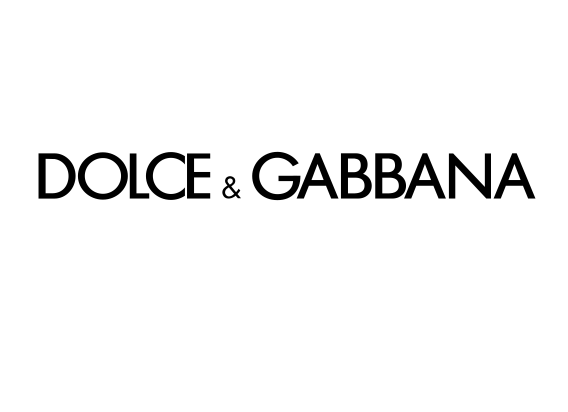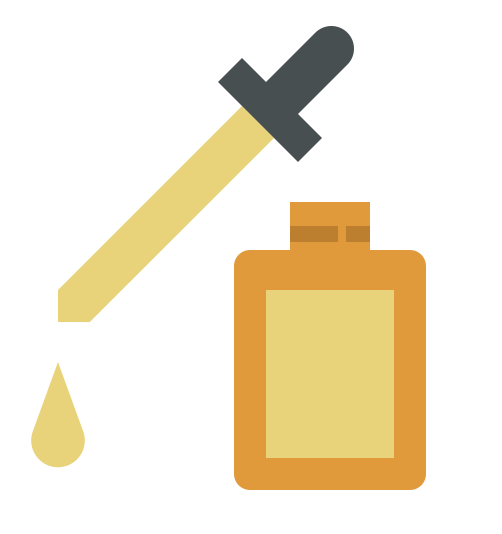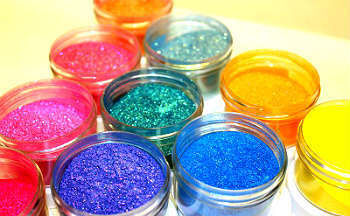
News e Media
Selling luxury makeup in the United States
Dolce & Gabbana's new business strategy to export and sell its cosmetics line in the U.S. market
https://www.exportusa.eu/selling-makeup-luxury-in-the-usa.php (+1) 718-5225575
(+1) 718-5225575
CBD, also known as cannabidiol and/or cannabis Sativa inflorescence extract, has become a veritable beauty and wellness ingredient because of its anti-inflammatory, antioxidant and sebum-regulating properties. Keep in mind that CBD's active ingredient is not psychoactive and thus does not alter mental state and mood, unlike THC, the plant's other active ingredient that causes cannabis euphoria.
The popularity of CBD beauty products in America has grown since hemp first became federally legal in 2018. With the passage of the U.S. Farm Bill, Congress opened the door to a new industry created out of thin air. A myriad of new beauty brands specializing in CBD first flooded the U.S. market online and then also entered the mainstream distribution of large chain cosmetic stores in the United States, such as Ulta Beauty and Sephora, which helped to clear customs and spread the CBD trend in the beauty and wellness industry. Soon, finding CBD in the formulas of face, body, and hair products went from being a trend to becoming the norm in America.
Lord Jones, founded by husband and wife Robert Rosenheck and Cindy Capobianco in 2017, started with CBD gummies and chocolates, then pioneered cannabis in cosmetics, and became the first CBD brand supplied by retailer Sephora. In 2019, it was sold to Cronos Group for $300 million. Soon after, the American entrepreneurial couple launched a second CBD beauty line in the luxury segment, Happy Dance, together with Kristin Bell. Then the pandemic broke out, and like all brands in the beauty and wellness segment, CBD-focused companies were affected by the changes caused by Covid.
But pandemic aside, Saint Jane's founder Casey Georgeson still predicted that the CBD industry needed to renew itself. - While 2019 could be called the year of the CBD boom in America, where interest, trend, and growth combined perfectly, the other side of the coin was market saturation. CBD could be found everywhere in the United States: from turkey gravy to hummus to yoga pants.
On the other hand, the pandemic has amplified the CBD phenomenon. This is also evidenced by a report by Global Market Insights, which shows that the increasing emergence of anxiety disorders during 2020-2021 has contributed to an increase in demand for CBD products in the sleep and insomnia segment, reaching sales of $1.1 billion in 2021. However, precisely because of the massive demand for this ingredient in the U.S. market, CBD was pitched and advertised as a panacea for just about everything, to the point that many U.S. consumers could no longer distinguish between the fake marketing promises from the real benefits.
Especially in the early days, when CBD entered the U.S. market as a natural ingredient in cosmetics and wellness products, there were strong doubts about its actual properties and efficacy, and American consumers need to be educated on the subject. - CBD cosmetic products were so trendy in the U.S. that the cannabis molecule was included just about everywhere, even as an ingredient in mascara, for example, thus without scientific criteria and validity, - says Kiana Reeves, Chief Brand Officer of Foria Wellness, which has contributed to the rise of a functional beverage combining turmeric and CBD in the U.S. beverage industry.
Saint Jane and Foria, among the first beauty brands specializing in CBD to enter the U.S. market, are now introducing other ingredients into the formulas of their newly launched cosmetic lines in the U.S. market. Saint Jane launched its CBD-free Luxury Sun Ritual SPF sunscreen last May 31, while Foria introduced two new CBD-free organic botanical products on June 9: a breast oil and the second version of its best-selling Awaken Arousal Oil, this time CBD-free. Stephen Letourneau, the new chief brand officer of Cannuka (the first CBD brand to join the Ulta Beauty chain in the U.S.) said last February that the brand's products will not contain CBD in the future. Other beauty brands, such as WLDKAT and Feelist, which specialize in CBD, have also begun offering other product ranges with formulas focused on other ingredients.
By now, it would be easy to conclude that this is a clear sign of the descent of the CBD trend in America, as if to confirm some market prediction by the day expert. But this is not the case. Saint Jane, for example, was reporting a 375% year-over-year increase in sales from its e-commerce channel and was one of three CBD brands highlighted on Sephora's website in April. Saint Jane's founder Casey Georgeson said she decided to create a CBD-free Luxury Sun Ritual line because sunscreens often have families as their primary customers. - Even though the FDA has approved the CBD in our products, it was a necessary step, - said Casey. - Since the whole family uses sunscreen, I didn't want American consumers to feel somehow restrained from buying our products, thinking "Oh, I can't use it if I'm pregnant," or "I can't use it on my children and take it to the beach." - Casey further said that even among the brand's most devoted customers, some are unaware that its award-winning flagship product Luxury Lip Shine contains CBD. - When we launched the product I was excited to tell the story of how we created the gloss. The clean ingredients contain micro-dosed, slow-release CBD particles that last all day, but I don't think the message I wanted to convey got through.
CBD brands still lack the total online advertising leverage of the classic beauty and wellness brands in America. Not to mention that many U.S. mass retailers do not want to create partnerships with brands that produce CBD products. This is why companies that have created a successful brands specializing in CBD are now looking to expand outside their specific niche to reach the mainstream market that offers considerable opportunities in the beauty industry in America. After all, this is the standard growth process for a brand that wants to scale the cosmetics market in the U.S., and it is no different than a skincare brand launching makeup or hair care products, or vice versa. Casey is still committed to producing innovative CBD beauty formulas, and the award-winning luxury serum remains Saint Jane's flagship product. Still, she recognizes the benefits of creating a CBD-free product line. The brand's CBD-free Luxury Sun Ritual SPF immediately sold out on Saint Jane's official website and on Credo Beauty, the brand's exclusive strategic launch partner. Casey disclosed purchase data for some of its products in America, saying that in the CBD sunscreen segment, loyal customer buys two or three pieces every time they shop online. The success of this product has also allowed the brand to create new strategic partnerships with new distribution partners in the U.S.. In fact, since mid-June, it has also been on sale on Goop, a multi-brand retailer operating in the U.S. in the beauty & wellness segment. Goop does not currently sell CBD products. " We are relieved to see the CBD hype take a back seat in favor of companies making great products with ingredients that work, " Kiana Reeves said. - If CBD is one of those ingredients, that's great. And if it's not, it's just as great.
Kiana expects the brand to grow in the beauty sector due to new CBD-free product lines, allowing Foria to enter new cosmetics and wellness retailers in the US. According to Foria Wellness' sales results, which are split between ecommerce for 80% and wholesale sales for 20%, - the sales of digital native brands have grown tremendously in recent years in the United States. Suppose the internet is the place where people get to know new brands, and we are a concrete example of that. In that case, positioning oneself in large retail giants in the beauty industry such as Sephora, Ulta or Nordstrom lends brand reputation and even more credibility in the eyes of consumers, - said Reeves.
Anthony Saniger, founder and CEO of Standard Dose (the specialty retailer of cosmetics and wellness supplements) and the homonymous spa in New York City, says that although Standard Dose has distinguished itself in the U.S. market by shining a spotlight specifically on CBD, it has started selling CBD-free products as early as 2019. Saniger said that although CBD products make up only 30% of the entire product range, 60% of CBD consumers are buying CBD more frequently, usually within 30 to 60 days of their last purchase. He added that Georgeson confirmed that - the craving for these products by American consumers is there, especially in CBD cosmetic lines for professional use such as in beauty salons and spas. Indeed, Saint Jane's is a line that is used and sold within the beauty treatments offered by the Ojai Valley Inn, the spa at the Proper Hotel in Austin, and some selected Four Season Hotels, as well as being available in traditional cosmetics chains in the U.S. market such as Sephora and Credo. - CBD initially made a lot of noise before the trend gradually faded. However, there is a large segment of the market still interested in this category of beauty and wellness products in America. The market is only now moving from niche to mainstream. It's just a matter of time, and more importantly, of educating the customer, - he concluded.

Dolce & Gabbana's new business strategy to export and sell its cosmetics line in the U.S. market
https://www.exportusa.eu/selling-makeup-luxury-in-the-usa.php
2022 will be the year of all-around health in the US: consumer demand in the beauty industry has shifted to niche products that have now become must-haves
https://www.exportusa.eu/guide-cosmetic-products-us-2022.php
The use of certain ingredients is prohibited in the United States. The admissibility of these must be analyzed before the cosmetic can be imported into America
https://www.exportusa.eu/cosmetics_ingredients.php
ExportUSA takes care of ensuring that your products adhere to FDA standards. We make sure that all food products, cosmetics, medical devices, and dietary supplements comply with FDA regulations.
https://www.exportusa.eu/fda-compliance-exportusa.php